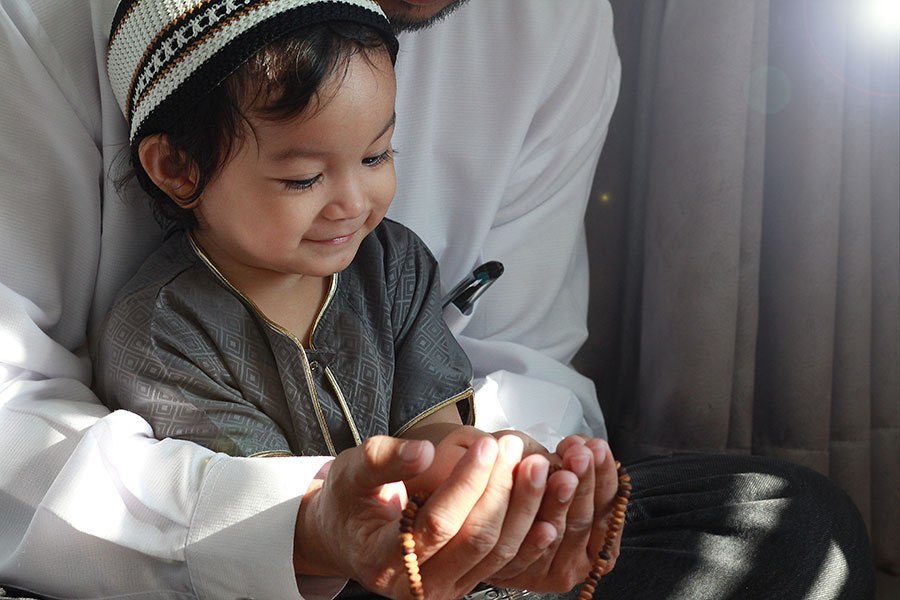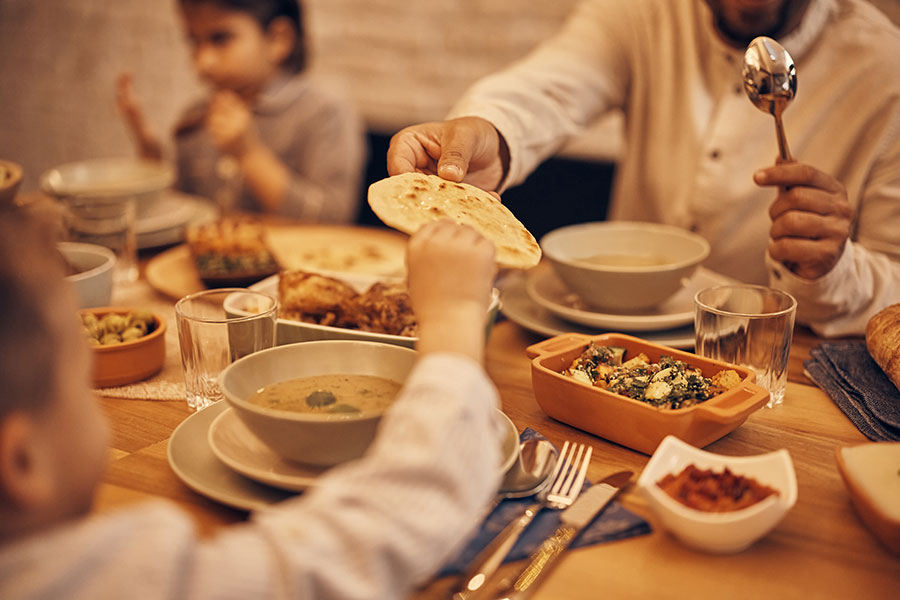Early spring brings us all joy as the days grow longer and warmer, and naturally, it is also a special time of year for several of the world’s major religions. Ramadan, the ninth and holiest month in the lunar Islamic calendar, falls on a different month every year of the solar Gregorian calendar. This year, it falls from mid-March through mid-April: specifically, Sunday, March 10 to Tuesday, April 9.
(Because the beginning of Ramadan is signified by the first sighting of the new crescent moon, the starting-ending dates of the holiday, and consequently of Eid al-Fitr, are a relative estimate and may differ by a day or so.)

The five essential pillars of Islam (the core values of the religion) are daily prayer, professions of faith, giving charity, pilgrimage to Mecca, and fasting. Ramadan centers around the latter, requiring observers to abstain from food, drink, and sexual relations from dawn to sunset all month. Like many faiths that call for periods of fasting and abstinence, this is intended to grant observers spiritual fulfillment and bring them closer to God.
Just as importantly, Ramadan is also a time to spend with community and with loved ones, usually by sharing large evening and predawn meals. The month ends with the celebration of Eid al-Fitr, “the festival of breaking the fast,” another holiday in which observers and loved ones get together to share a meal, exchange gifts, and give thanks (this year, Eid al-Fitr falls on the evening of Tuesday, April 9). Should observers miss a fast during Ramadan, they can make it up by fasting later in the year or by making charitable donations.

To protect observers’ well-being, nobody is required to fast if it would harm their health or if they are physically unable to. This includes pregnant and/or breastfeeding women, young children, the elderly, travelers, and anyone with a medical condition preventing them from fasting.
To stay healthy during the daily fasting period, it is recommended that evening/predawn meals contain lots of protein and fiber, and are heavy on fruits and vegetables as well. Ideally, you should not eat too fast or eat overly heavy meals, and meals should be easy on your stomach and last long in your body. Remember to stay well hydrated, especially as the weather gets warmer!
If you have any questions or concerns, please feel free to contact us anytime at info@gravityintprog.com. Stay safe and healthy, and Ramadan Mubarak!






